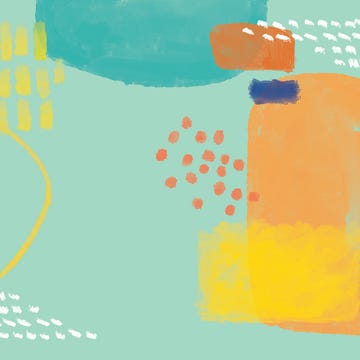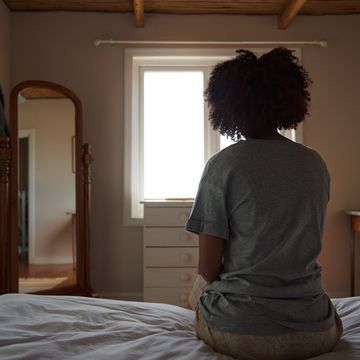This morning a beloved member of my Facebook family posted: My childhood friend’s father died yesterday from COVID-19. Because of this horrific virus, she can’t even have a public funeral. Normally I’d rush over with food and hugs but obviously that’s impossible for the foreseeable future. I feel devastated and so helpless.
In the best of times it is difficult to know how to help someone grieve. The number of fatalities from COVID-19 is rising each day. As I write this, confirmed deaths in the United States are closing in on 12,000. Thus the previously unimaginable quandary of how to offer comfort when both you and the bereaved are sheltering separately in place is becoming heartbreakingly commonplace.
Do show up—and keep showing up.
COVID-19 is robbing us of many things. However, while the traditional rituals such as public funerals, wakes, and Shivas are not options right now, the virus needn’t rob you and your friend of the solace provided by reaching out and showing your love—even if it has to be virtual. In the 1917 pandemic the sufferer had to mourn alone. Thankfully, 2020 comfort-givers can video chat and leave video or audio messages. I’m not a fan of written text condolences when the bereaved is someone close to you—it’s so casual!—except as an adjunct to more intimate forms of communicating. Which leads to the importance of utilizing the old-fashioned methods of reaching out: phone and letter. If you knew the deceased, mention stories detailing your memories of the one who has passed.
If you knew the deceased, mention stories detailing your memories of the one who has passed.
Don’t be derailed if your grieving friend doesn’t initially respond; it shows your loving heart to check in every day or two and let the person know you love him or her and are available for a conversation whenever. It’s vital for your friend not to feel alone. For instance, research has shown that after the death of a partner, social isolation can lead to longer-lasting grief.
Don't ask, "What can I do to help?"
Your friend is likely emotionally overwhelmed, perhaps immobilized. Asking if there is ever anything you can do, no matter how sincere your offer, can be met by a polite response such as, “That’s so kind of you….” Not because your friend doesn’t appreciate the offer but he or she can barely get up of bed in the morning, much less possess the mental acumen to know what would be helpful.
So put yourself in the mourner’s shoes: Offer to send over a mask, root out toilet paper, Lysol wipes or other COVID-essential, hard-to-find items.
Do send something, since you can't be there physically.
You can’t visit, but the emotional lift given by thoughtful tokens such as food, flowers, and/or gift certificates will last well after the present itself is a memory.
Your friend might have little energy for the necessary planning surrounding a death. You can offer to set up a crowdfunding campaign to cover the cost of the eventual funeral and/or a virtual altar on a platform such as Ever Loved where people can post photos, memories, and condolences.
Don’t do anything major (i.e.: setting up a livestream funeral and sending e-invites) without first asking if your help for this task is needed or wanted. Your goal is to be supportive, not take away your friend’s sense of agency.
Offer to set up a crowdfunding campaign to cover the cost of the eventual funeral.
Don't assume you know how they're feeling.
Even if you’ve suffered your own losses in the past, your friend’s grief is not identical. Bite your tongue before saying something like, “I know exactly how you feel. When so and so died, I felt like I’d never get over it because I loved him so much. What I went through was torture so I totally get it.”
Instead, offer to listen to whatever he or she needs to say whether by Zoom or phone. My Facebook buddy wound up virtually being there for hours at a stretch while her grieving friend sobbed.
Do acknowledge your own pain.
Jennifer LaPorte, M.S., a Wisconsin-based Hospice Chaplain and Bereavement Coordinator, cautions against ignoring the loss you feel because it feels so insignificant in comparison to what your friend has suffered. There’s even a term for this feeling of disentitlement: disenfranchised grief. Laporte offers this assurance: “You’ve had a loss as well and are entitled to the full-bodied experience of your grief.”
We are enduring a collective grief over a way of life society took for granted. The freedom to walk outside and the pleasure of hugging a loved one has been severed for an indeterminate amount of time. Imagine that grief coupled with the loss of someone close and know that even if the mourner insists he or she is fine and doesn’t need anything, that proclamation is not true. Reach out and offer the richness of your soul in a safe yet nonetheless indescribably helpful way.
Like what you just read? You’ll love our magazine! Go here to subscribe. Don’t miss a thing by downloading Apple News here and following Prevention. Oh, and we’re on Instagram too.
Sherry Amatenstein, LCSW is a NYC-based psychotherapist, journalist, an anthologist, author of three relationship books and host of the podcast SHERAPY: Real Therapy with Sherry Amatenstein.













